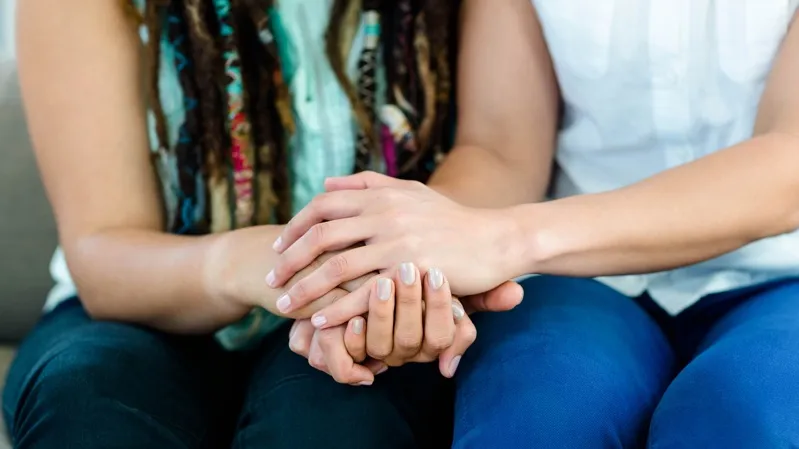June 9, 2015
GMHC Relaunches Historic Buddy Program
EDGE READ TIME: 4 MIN.
In commemoration of National HIV/AIDS Long-Term Survivor Awareness Day, Gay Men's Health Crisis (GMHC) is relaunching its historic Buddy Program to meet the unmet needs of HIV and AIDS veterans. The agency also launched a new page on its website dedicated to services for long-term survivors, defined as those who contracted the virus before the advent of anti-retroviral therapies (ART) or who have been living with HIV or AIDS for ten or more years.
Originally created in 1982, GMHC's Buddy Program helped those dying from AIDS who were isolated and didn't have support from family to care for them. Buddies escorted clients to the hospital, medical appoints, and shopped for food and other household needs when clients became too weak to leave their homes. The program ended in 2005 due to decreased interest and funding eliminated from the Ryan White Care Act by Congress.
Today, issues faced by long-term survivors include isolation, the stresses of living with chronic disease, elevated risk for depression, substance use, and suicidal ideation. They also report experiencing stigma from within the lesbian, gay, bisexual, and transgender (LGBT) community, as well as symptoms that resemble post-traumatic stress disorder (PTSD).
The Buddy Program and other services for long-term survivors will be advised by a new committee overseen by Jeff Rindler, GMHC's Chief Program Officer.
"Having Jeff spearhead this committee and ongoing work is wonderful because he has worked with many of these resilient men and women over his 20-year history at GMHC," said Kelsey Louie, GMHC's CEO.
"Long-term survivors have lived through the worst of the AIDS epidemic, and now in many ways feel forgotten," added Rindler. "We are not only committed to making sure they are not forgotten, but also that they are honored and have access to services that meet their needs today."
"We deserve respect and a sense of community to help us out of our isolation and depression and to help us live the lives that GMHC and the LGBT community fought so hard to save in the early '80s," said Sean McKenna, a long-term survivor and member of the new advisory committee. "Helping to bring back the GMHC Buddy Program is nothing short of miraculous, not only because this time around it's designed to help people live their lives to the fullest, but also because, until there is a cure, every one of us who is infected will eventually become a long-term survivor."
This year's theme is "Every Survivor Counts" because many long-term survivors feel forgotten and invisible. Most survivors are isolated and are coping with the psychosocial effects of long-term survival, including depression, hopelessness, and AIDS survivor syndrome. Now they are also dealing with poverty, ageism, and a lack of meaning and purpose because they had the audacity to survive.
#EverySurvivorCounts is a reminder to survivors that they matter. It is also about raising awareness about the tens of thousands who are surviving AIDS. They are every gender identity and sexuality -- lesbian, gay, bisexual, transgender, and straight. They are all ethnicities and they survived the darkest days of the AIDS epidemic with courage and compassion. As individuals and a community, survivors exhibited strength and resilience they didn't know they possessed.
National HIV/AIDS Long-Term Survivor Awareness Day is held annually on an important anniversary. On June 5, 1981, the CDC's Morbidity and Mortality Weekly Report (MMWR) published a brief account of five young gay men diagnosed with Pneumocystis pneumonia (PCP), indicating signs of severely compromised immune systems. It was the beginning of AIDS awareness before it was even known as HIV/AIDS.
Gay Men's Health Crisis (GMHC) is the nation's leading provider of HIV/AIDS care, prevention services and advocacy, serving nearly 9,000 people living with HIV/AIDS in New York City, the epidemic's largest U.S. epicenter. As the world's first HIV and AIDS service organization GMHC is an expert in providing services that every person affected by the epidemic deserves.
GMHC is on the front lines caring for people who are both HIV negative and positive, including: testing, nutrition, legal, mental health and education services. GMHC also advocates for stronger public policies at the local, state and federal level with the goal of ending AIDS as an epidemic in New York State by 2020.
Most recently, GMHC and other HIV/AIDS organizations successfully persuaded the federal government to recommend widespread use of PrEP, a new daily treatment that is over 90 percent effective in preventing HIV infection.
For more information, visit http://gmhc.org/gmhc-services/get-connected/long-term-survivors


